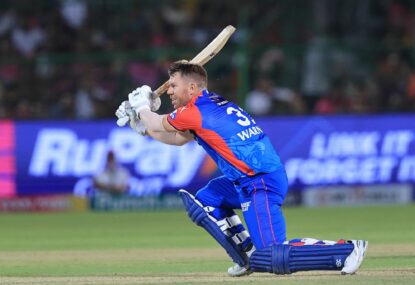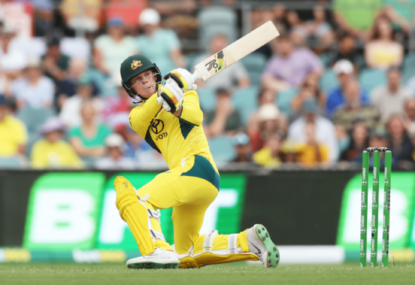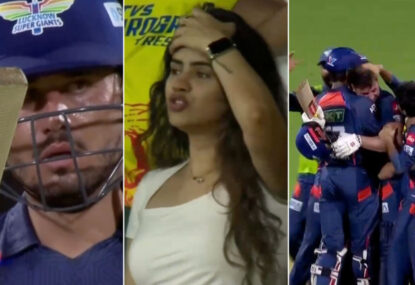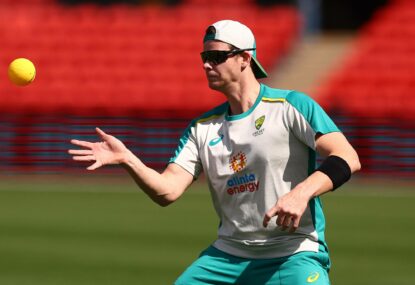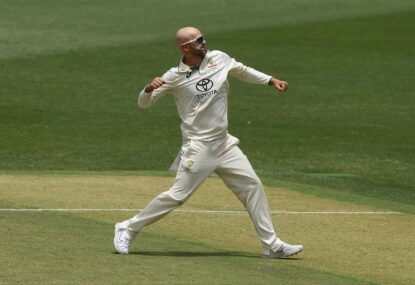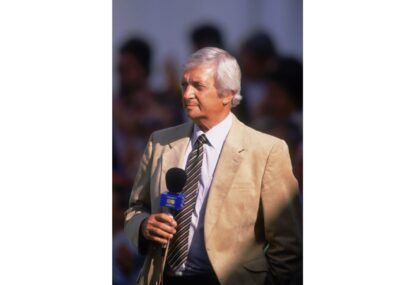A lot is going to be written about Rod Marsh, deservedly, by people who knew him better than I did. That’s not hard since I never met him.
But like a lot of Australian cricket fans of a certain age, I feel as though I knew him.
He loomed over my earliest cricket memories like a colossus – well, a short and stumpy colossus, crouched behind the stumps, leaping spectacularly to take catches like some Swan Lager-consuming ninja.
The first full season of international cricket I remember is the 1980-81 summer, best known today for the underarm game, and Marsh was in the thick of that, though not in the way you might think.
His image was of the pugnacious little Aussie terrier, fiercely pro-Ian Chappell and anti-Kim Hughes, among the ugliest of the ugly Australians, with ‘alpha’ practically tattooed on his forehead.
Yet in that one-day game – and it’s easy to find the footage – you can see Marsh calling out to Greg Chappell as the latter ordered his brother Trevor to bowl the underarm: “Don’t do it, mate,” he calls out, shaking his head.
Chappell ignored him, to his cost, as people often did when they didn’t listen to Rod Marsh on a cricket field.
Marsh seemed rock and roll, and I guess he was: the swagger, the sixes, the drinking record(s) on the way to England (1977 and 1983), the gossipy memoirs, the aerial leaps, the tell-all interview in Playboy magazine.
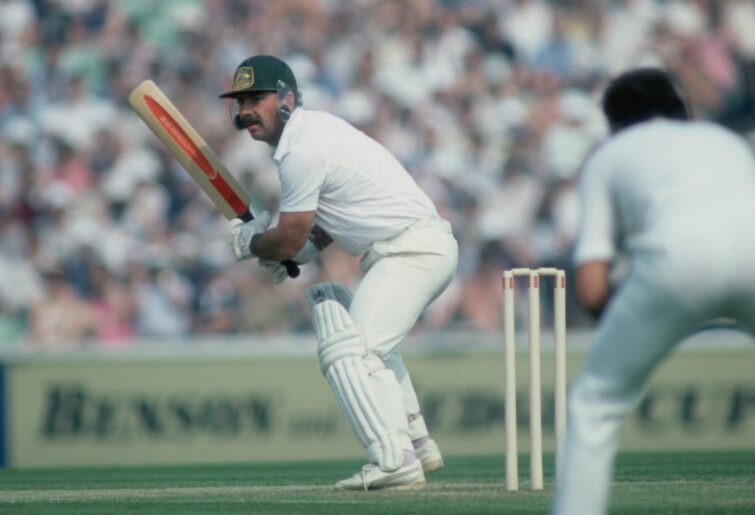
(Photo by Adrian Murrell/Getty Images)
He yelled, sulked, thrust out his chest, abused Mike Whitney in a Sheffield Shield game for telling him to “f— off”. He always looked like he was going to punch someone in the face.
But he was also a traditionalist. In the 1977 Centenary Test, Marsh recalled Derek Randall because he didn’t feel Randall was out, and he carried a picture of Jack Blackham in his pocket throughout the game, which is just too cute.
He was a family man who gave a lot back to the game after retirement: his work at cricket academies in Australia and England was sterling, his thoughts on the game always stimulating.
In terms of actual sheer contribution to cricket, Rod Marsh easily had the most useful post-cricketing career of any of that ’70s Australian side.
He was once a very effective batter with three Test centuries, plus one in the West Indies in the last SuperTest played during World Series Cricket.
One of my favourite mental pictures from that competition (this is all based on reading, not actual vision) is the thought of him and Ray Bright batting their hearts out in the fifth SuperTest in Antigua, conquering the world’s best attack miles from home.
The last game of World Series Cricket ended with Marsh on 102 not out.
He wasn’t as good with the willow after WSC, it must be admitted. Marsh was in the thick of all those famous Australian collapses of the early 1980s: versus India at the MCG in 1980-81, versus England at Headingley and Edgbaston in 1981, and versus Zimbabwe at the 1983 World Cup.
This drop in batting form led to a push to replace him with Wayne Phillips as keeper over the 1983-84 summer – this is forgotten today, but it happened.
Read Marsh’s memoir of that summer, he was bitter about it. And for good reason, Phillips’ stint with the gloves was ultimately disastrous for that fine player and for Australia.
For me, the biggest ‘what if’ of 1980s Australian cricket was ‘what if Rod Marsh had been appointed captain?’
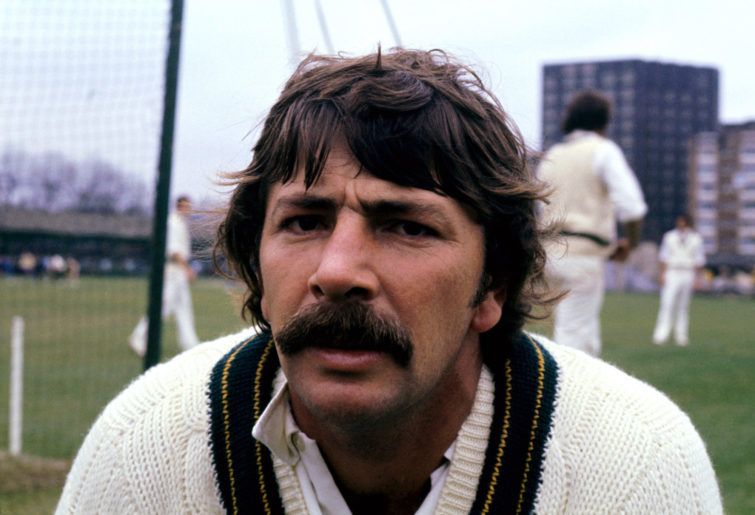
(Photo by S&G/PA Images via Getty Images)
The Australian Cricket Board had plenty of opportunity to do this due to Greg Chappell’s constant absences – they could’ve done it prior to the 1981 Ashes, 1982 tour of Pakistan, 1983 World Cup, and 1983-84 home summer.
And they could’ve asked him to come out of retirement at the beginning of 1984-85.
According to Christian Ryan’s superb biography of Kim Hughes, Golden Boy, the closest Marsh came to the top job was just prior to the Pakistan tour, with the crucial factor being the West Australian delegates’ support of Hughes.
What if it had happened? Marsh given extra leadership, the team more united, Kim Hughes freed up to play as a batter only Allan Border given more of an apprenticeship as leader of Queensland, Wayne Phillips allowed to flower as a batting specialist, Australia’s fielding standards kept high.
I feel Marsh would’ve stayed on through two series against the West Indies in 1984-85, most likely retiring against England in 1985 (that would’ve been a hard tour for him to resist if he’d been captain).
I still think Australia would’ve lost in Pakistan in ’82 and against the West Indies, and still found the mid ’80s hard going (the South Africans were coming, and there was no way they weren’t going to find 16 defectors, not at $200,000 tax-free a season).
But I can’t help feel we would’ve done a hell of a lot better: I think a Marsh-led team would have at least drawn against England in 1985. Certainly Kim Hughes wouldn’t have resigned in tears.
We’ll never know, of course, but it is important to discuss these things because the powers that be keep forgetting that the best captain is sometimes not a batter.
Rod Marsh made an incredible contribution, not just to Australian cricket but also to Australian culture – people who never watched a game will have heard of Rod Marsh (oh, and he invested in Crocodile Dundee).
RIP ‘Bacchus’. P.S. that’s probably still the best nickname of any Australian cricketer.
































































































